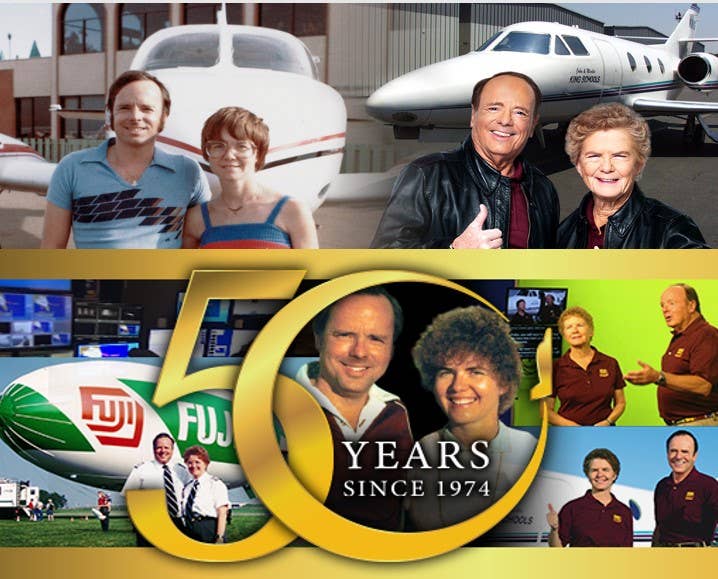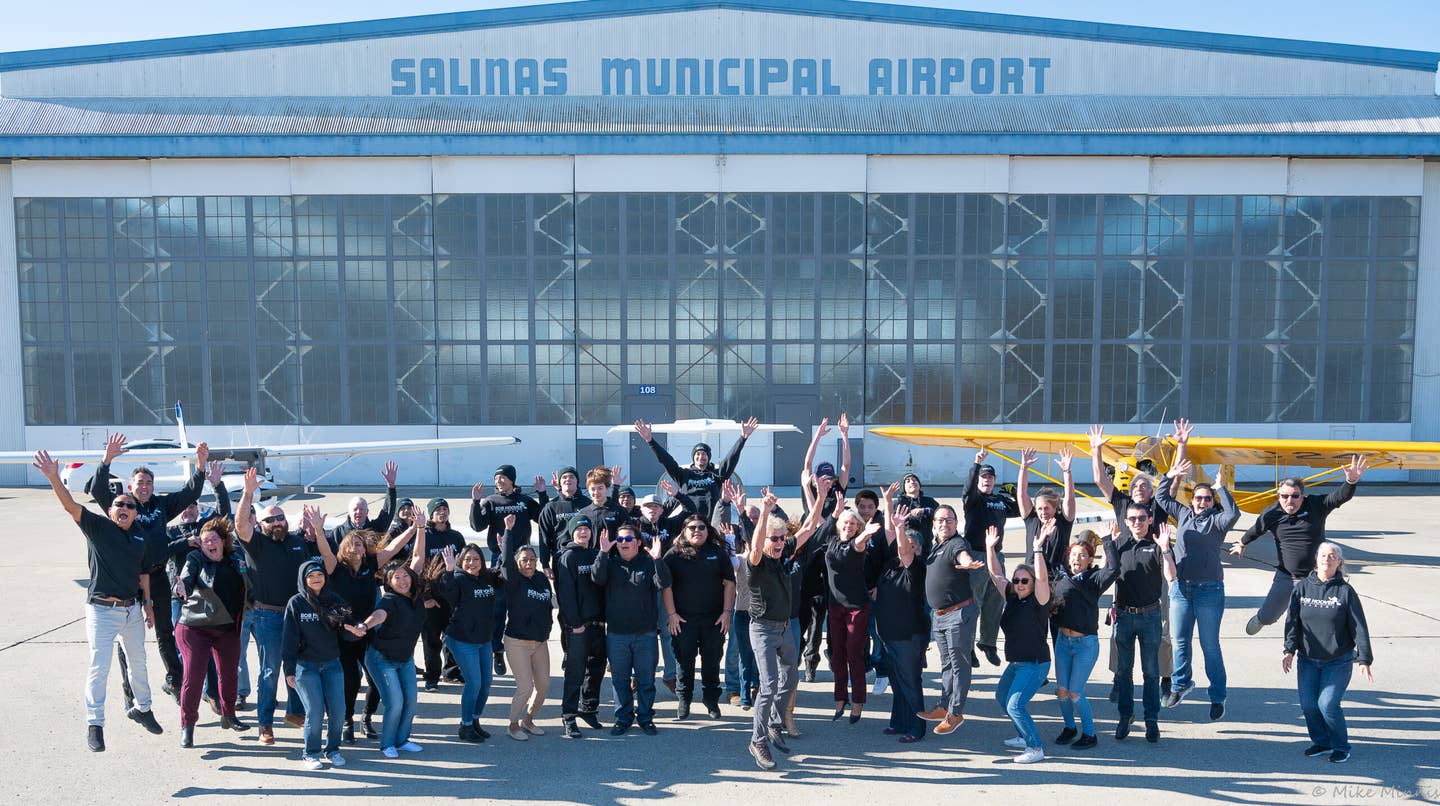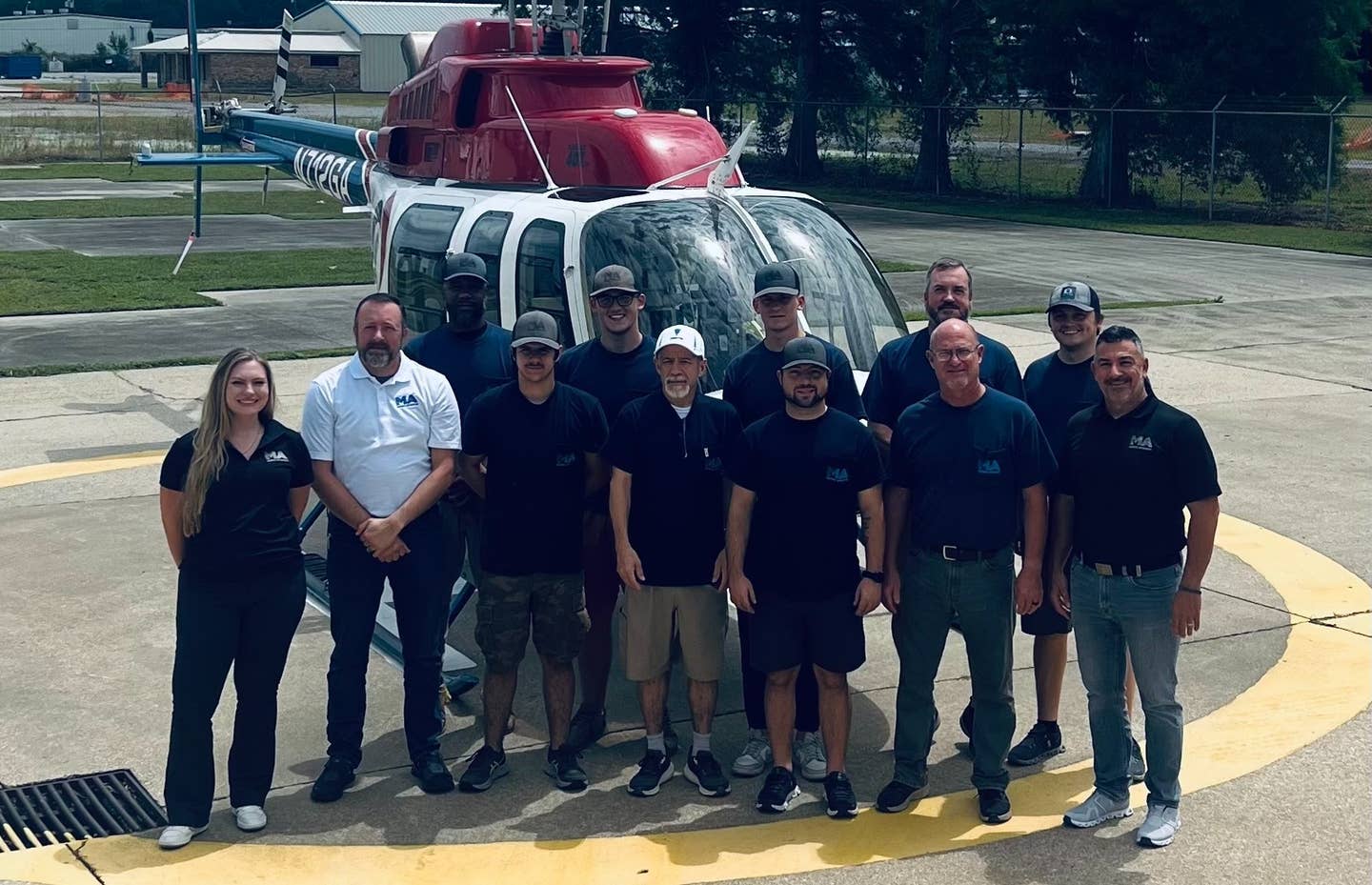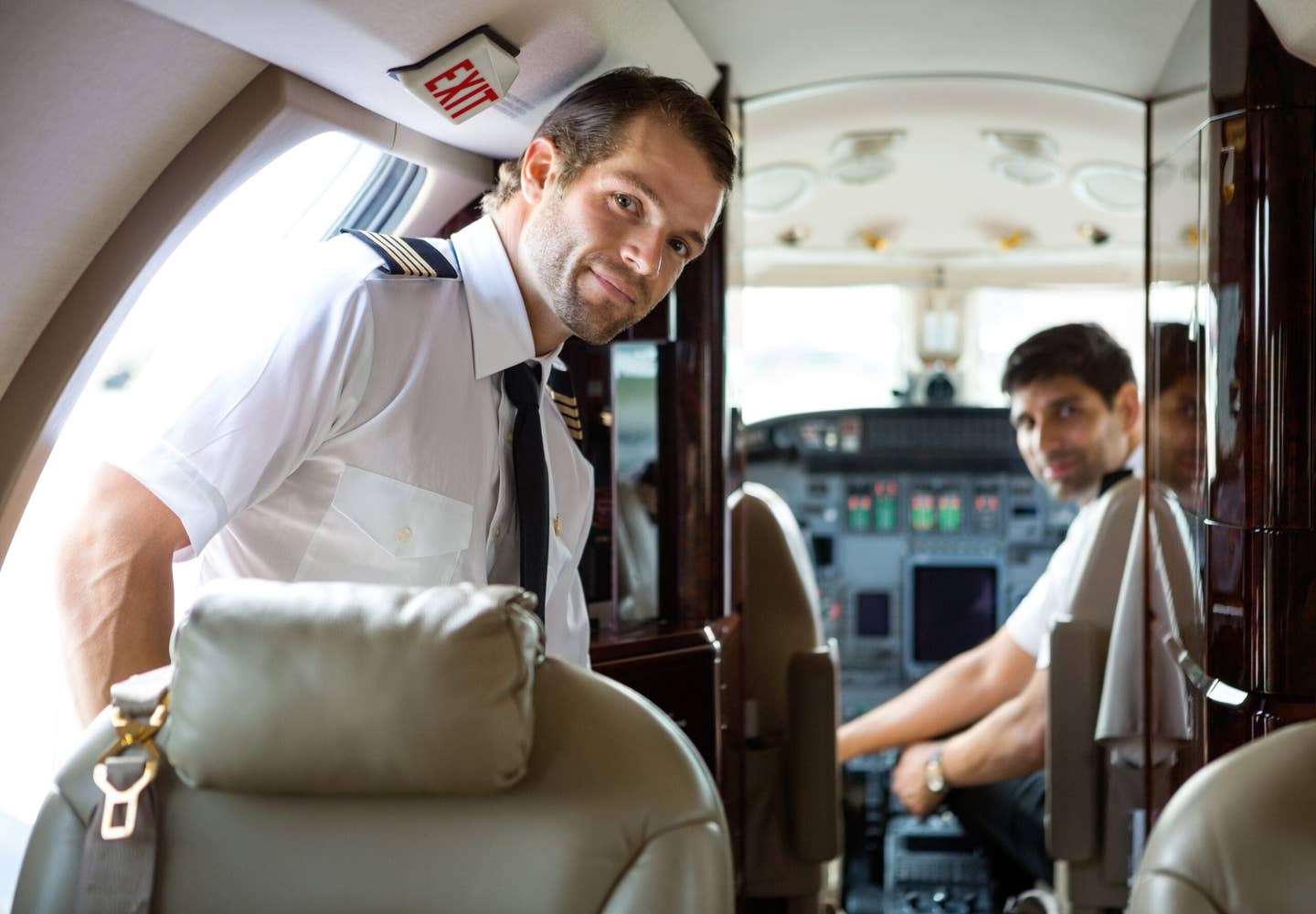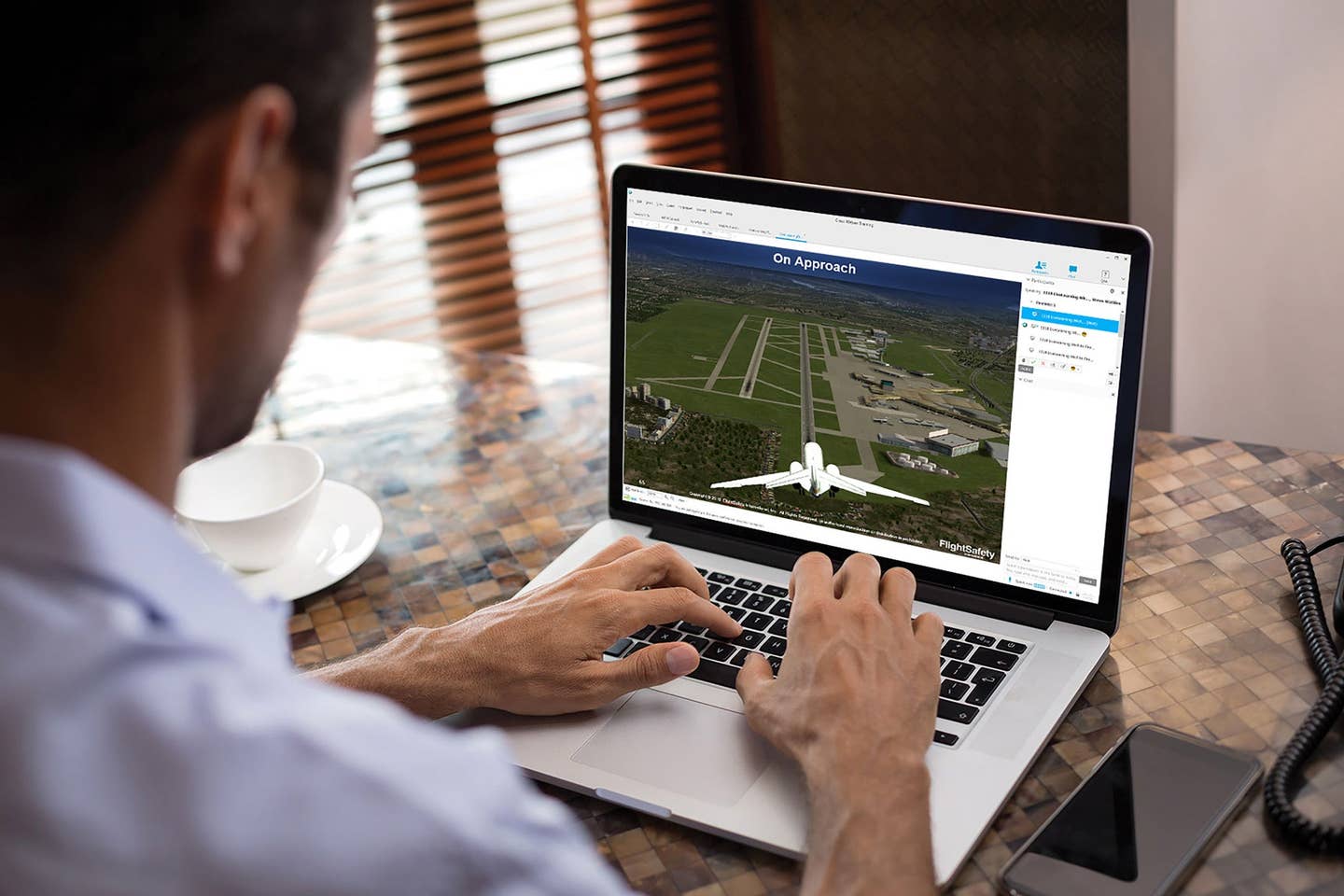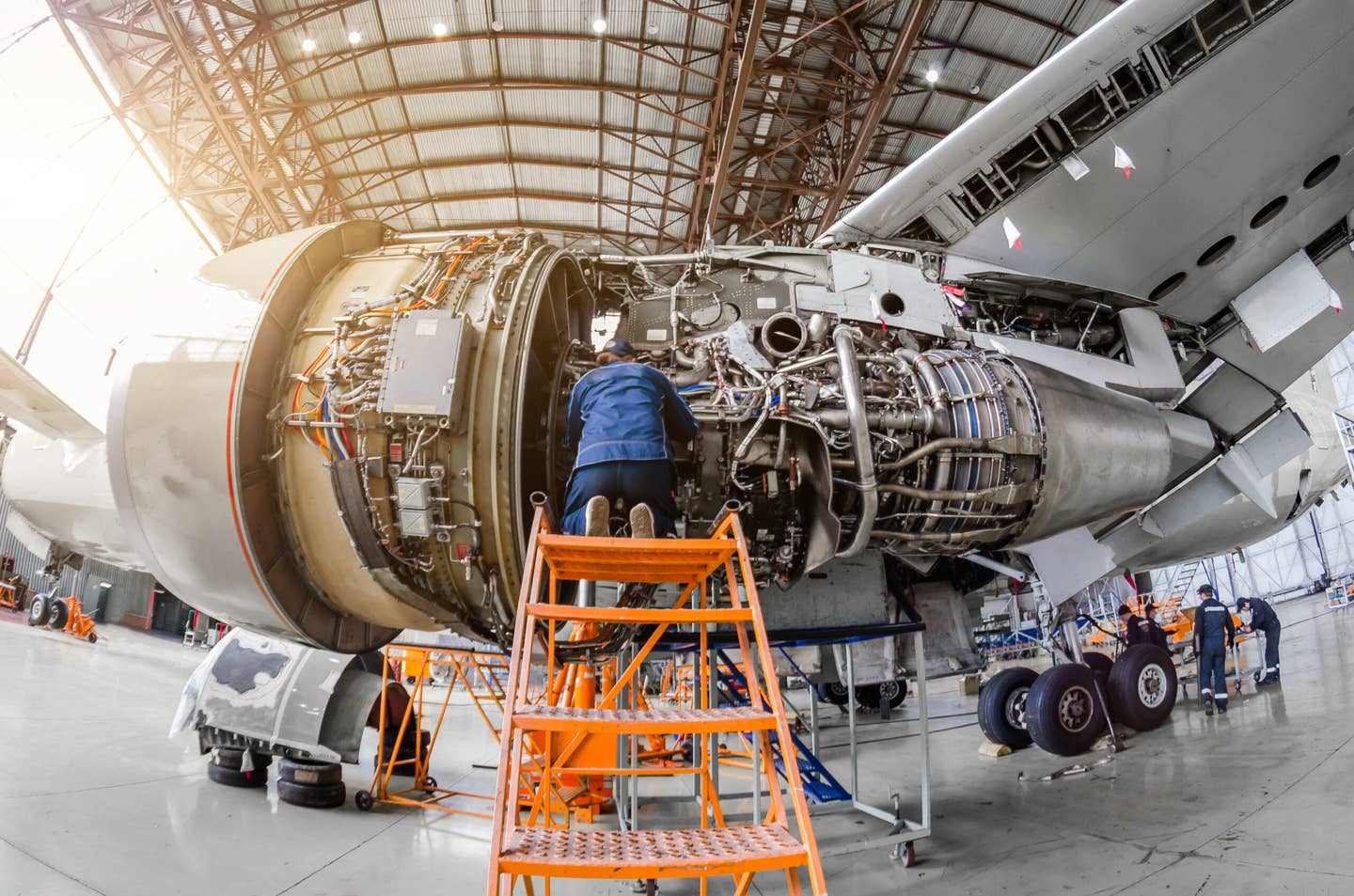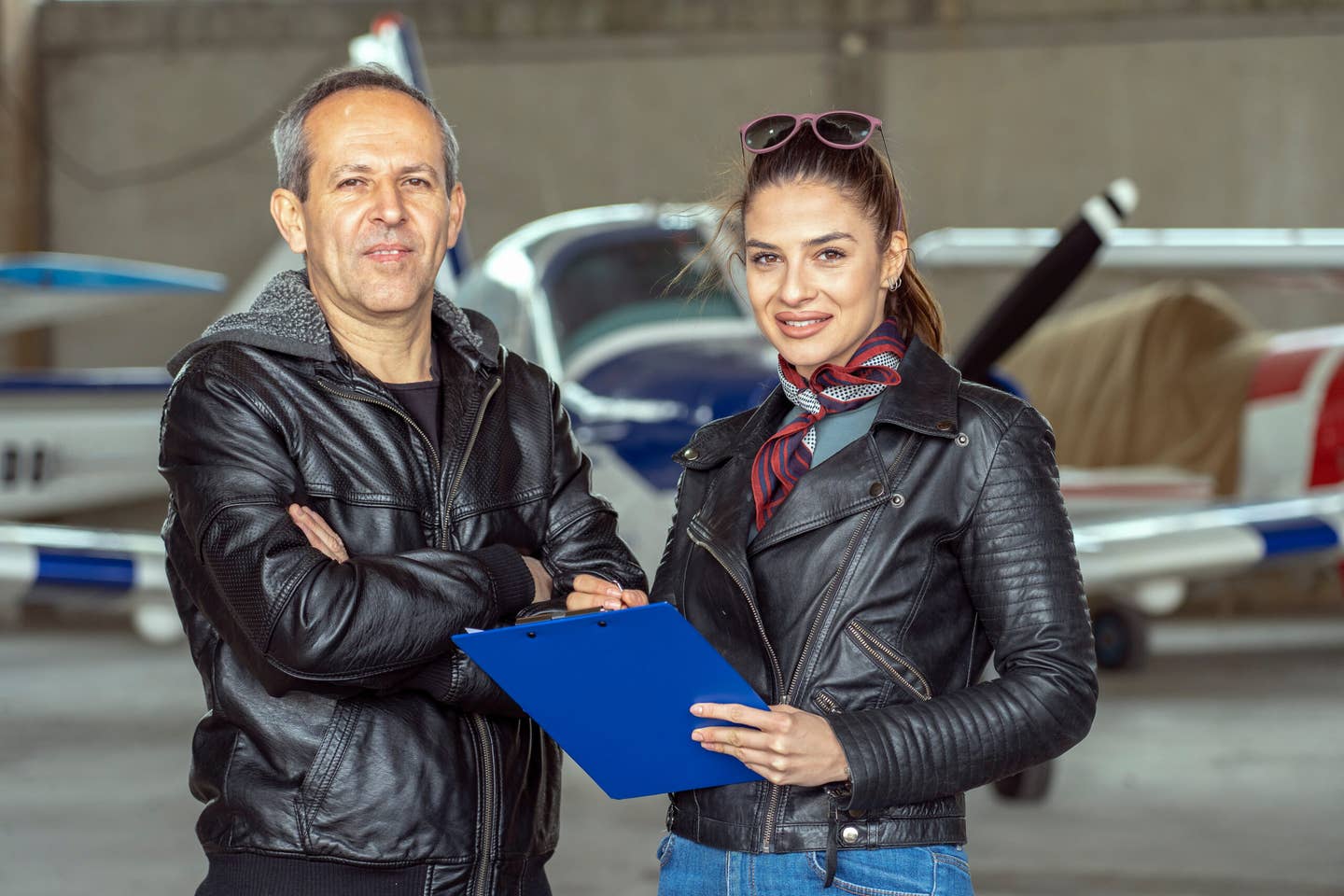
There are plenty of aviation scholarships ot there for the taking. [File Photo: Adobestock]
So, you want to be a pilot? That’s great! But how can you go from wanting an office in the sky to actually having one? One of the greatest barriers to becoming a pilot is cost. No worries, though. There are a number of organizations, colleges, and universities that offer aviation scholarships to help you. And, with the growing global pilot shortage, aviation scholarships are becoming even more plentiful.
Ace your FAA written test, save money during flight training, and become a better pilot with Sporty’s Learn to Fly Course.
Learn MoreWhat Are Aviation Scholarships?
Some colleges or universities may have aviation scholarships available to you; however, most college/university scholarships go toward tuition-based costs, not flight training. Flight training costs are extra and are generally assessed by the hour. This is because you are paying a certified flight instructor an hourly rate to teach you. There are also costs associated with using a training aircraft in the college fleet.
That’s where scholarships come into play. They're offered by organizations and corporations who want to increase the number of pilots for the aviation industry. Corporations, including regional and major airlines, are particularly interested in having a trained and qualified pipeline of future pilots from which they can draw to pilot their corporate, passenger, and/or cargo aircraft. Aviation scholarships are available to pay for the costs of flight training, whether you’re enrolled at a college, university, a flight school, or a fixed base operator (FBO).
How Much Does Flight School Cost?
The average cost of flight training ranges from $5,100 to $16,000, and that’s just to earn your private pilot certificate. With a private pilot’s certificate, you can fly VFR (visual flight rules) with up to one non-paying passenger—but for non-commercial purposes only.
If you want to be paid to fly, you need to continue your flight training and earn a commercial certificate and/or an ATP certification. It can cost upwards of $100,000 to earn all of the certifications—and more importantly, to get the in-flight hours that you need to become an FAA-certified airline transport pilot (ATP).
Can You Go to Regular College to Be a Pilot?
If you want to earn a traditional four-year degree and/or pursue graduate studies, you can do this and do your flight training at the same time. There are several accredited colleges and universities that offer aeronautical science and related aviation degrees that also offer on-site flight training. Embry-Riddle Aeronautical University and the University of North Dakota are two well-known programs for this degree.
If you prefer, however, you can fast-forward your flight career and earn your pilot certificates at a flight school or FBO. Several major airlines recently relaxed their hiring requirements for a bachelor’s degree, including Delta Airlines, American, Southwest, and United. So you now have a direct path to becoming a pilot for the airlines without earning a traditional four-year education.
The current and projected pilot supply shortage has opened up other routes to the airlines as well. United Airlines recently launched Aviate, an in-house pilot career development program.
How Do I Find Aviation Scholarships?
There are a number of organizations and corporations that offer aviation scholarships. These include the Aircraft Owners and Pilots Association, the Experimental Aircraft Association (EAA), and many others.
The FAA includes a list of organizations that provide scholarships as well. To find aviation scholarships, visit reputable flight-oriented and aviation-related organizations and associations online. You can also search the internet using keywords, such as “aviation scholarships” or “flight training scholarships.” Your flight training school, college, or university may also have aviation scholarship resources.
Women in Aviation International (WAI)
If you’re a woman, there are specific aviation scholarships just for you. Less than 5 percent of airline pilots in the U.S. are women, and there are initiatives across the industry to increase this number. Women in Aviation International, a nonprofit organization aimed at supporting and encouraging women in aviation careers, offers more than 100 scholarships each year, totaling hundreds of thousands of dollars. Following are the basic criteria for these scholarships.
- Be a member of Women in Aviation International by October 1 of the current year.
- Submit two, one-page letters of recommendation.
- Include a typed, 500-word essay and a professional resume.
- Submit clear, high-quality copies of aviation and medical certificates, including the three most recent pages in your flight logbook (for flight training scholarships).
Scholarship Amount: Each scholarship amount varies. Not all are for flight training. WAI offers a variety of aviation scholarships to meet the needs of the entire aviation industry, not only the airlines.
Where to Apply: When the application period is open, apply here. Most WAI scholarships are due in October.
Sisters of the Skies
If you are a woman of color, Sisters of the Skies, a nonprofit that supports and encourages women of color who want to become pilots through scholarship, outreach, and mentorship, has a number of scholarships just for you. In the past four years, Sisters of the Skies has awarded $500,000 in scholarships for women in aviation.
Application Requirements: Vary based on the scholarship for which you apply.
Scholarship Amount: Each scholarship amount varies.
Where to Apply: When the application period is open, apply here.
Amelia Earhart Memorial Scholarships and Awards
Offered by the Ninety-Nines, an international organization that advances aviation and women in aviation through education, scholarships, and support, Amelia Earhart Memorial Scholarships are awarded each year to qualified members for five different scholarship types: flight training, academic, technical training, the Vicki Cruse Memorial Scholarship for Emergency Maneuver Training, and the Kitty Houghton Memorial Scholarship.
Application Requirements:
- For flight training, academic or technical training aviation scholarships, the applicant must have been a member of the Ninety-Nines for one full, continuous year before the application deadline.
- Applicants must have a goal to advance in the field of aviation or aerospace.
- Applicants must demonstrate financial need (except for those applying for the Vicki Cruse Scholarship)
- Applicants must possess a medical certificate and/or driver’s license (for certificates/ratings that do not require a medical). Academic and technical training scholarships do not require a medical certificate.
- Additional requirements may apply, based on the type of scholarship.
Scholarship Amount: Each scholarship amount varies. The Flight Training Scholarship covers up to $20,000 for one pilot training course, certificate, rating, or type rating; and the Kitty Houghton Memorial Scholarship offers up to $20,000 for flight training or education in an aviation-related field. More information can be found here.
Where to Apply: When the application period is open, apply here.
Easily become an airplane or commercial pilot online! Courses designed by industry experts can help you pass FAA tests and get into the sky!
Enroll NowNavigate Your Future Scholarship
The Navigate Your Future aviation scholarship is offered by the National Air Transportation Association (NATA).
Application Requirements:
- Applicants must be a senior in high school and plan to pursue a career in general aviation.
- Applicants must be enrolled or accepted into an aviation program at an accredited college/university.
- Applicants must demonstrate a passion and interest for general aviation.
- Applicants must provide one letter of recommendation and a high school transcript that shows their rank in the graduating class.
- Applicants must include a personal statement discussing their career goals and why they should be selected for the scholarship.
Scholarship Amount: $2,500 to be used toward one year of undergraduate study.
Where to Apply: When the application period is open, apply here.
EAA Aviation Scholarships
EAA offers a variety of aviation scholarships, including flight training, post-secondary, and the Ray Aviation Scholars awards. Supported by donors, these endowed scholarships award more than $1 million through EAA programs every year. The scholarships are “awarded to those who show the greatest potential to be actively engaged in aviation,” according to the EAA. Flight training scholarships can be used at any non-university flight school in the U.S. or Canada.
Application Requirements:
- Flight training scholarship funds must be spent within one year of the award.
- Applicants must be eligible for the flight training process.
- Other requirements may exist, based upon the scholarship for which you apply.
Scholarship Amount: Each scholarship amount varies.
Where to Apply: When the application period is open, apply here.
6 Tips for Winning Aviation Scholarships
Flight training is expensive and just because you apply for a scholarship doesn’t mean that you’ll get it. To increase your chances of funding success, apply for as many aviation scholarships that you are eligible for—and that relates to your aviation career goals. Keep the following tips in mind as you complete your aviation scholarship applications.
Write Clearly and Concisely
Scholarship judges may review hundreds of applications. Be succinct in your writing and follow the application instructions to a T. For example, if the application calls for a 500-word essay, do not exceed this word limit.
Share Your Passion
Aviation scholarships are awarded to individuals who are passionate about the field of aviation. In the essay/open-ended portion of the application, be sure to tell your unique story and explain how this passion was ignited, and how you plan to contribute to the greater aviation community, above and beyond your future job. If you are involved in aviation associations and/or volunteer at aviation conferences, airshows, etc., be sure to mention this as well.
Avoid Misspellings and Typos
Sloppy writing won’t win you any points from the aviation scholarship review team. Ask a teacher or mentor to review your application for grammar, punctuation, spelling, and inadvertent typos before submitting it.
Fill Out the Entire Application
It’s important to provide as much information about yourself and your aviation career goals as possible, so don’t skip any questions/response fields in the application. Unanswered questions offer the perfect excuse for weary aviation scholarship judges to “weed out” your application.
Be Positive
Yes, flight training is expensive, but don’t gripe about it in the aviation scholarship application when discussing your financial need. Talk instead about the proactive steps you are taking to help fund your training, e.g. working part-time, starting a side business, working at the local airport in exchange for flight hours, etc. Industrious aviation scholarship applicants will fare better than those just looking for a handout.
Use Examples
When responding to aviation scholarship application questions, be sure to use personal examples. Instead of saying you’re a “hard worker,” explain how you helped with your family business as a teenager; and/or discuss the various part-time jobs that you’ve held, while also earning a high grade point average, volunteering, earning entry-level flight certifications, participating in sports or other extracurricular activities.
A Pathway to the Sky
While aviation scholarships are competitive, given the pilot shortage, more and more scholarship opportunities become available each year. If you follow the tips provided here, you’ll be one step closer to funding your flight training—and to your future office in the sky.
To keep abreast of all things aviation, subscribe to FLYING Magazine. Published by FLYING Media Group, the leading aviation media brand in the world, FLYING offers news, content, and information that is relevant to pilots and aviation enthusiasts: flyingmag.com/subscribe.
FAQ
What field of study do aviation scholarships fund?
Aviation scholarships provide funding for flight training at a flight school or FBO that will ultimately lead to you becoming a commercial/airline transport pilot. Aviation scholarships may also fund flight training and/or academic studies at an accredited college or university that leads to the completion of a degree in aviation/aeronautical science or some other aviation-related field.
Do pilots get scholarships?
Yes. Many pilots seek and are successful in being awarded aviation scholarships. Flight training is an expensive endeavor and it’s common for pilots to need financial assistance. Scholarships offer a way to reduce the debt burden for pilots.
Can I apply for scholarships when I go to flight school?
Yes, many aviation scholarships fund flight school costs at any stage of your training, and do not require you to be enrolled in a four-year college program.

Subscribe to Our Newsletter
Get the latest FLYING stories delivered directly to your inbox



